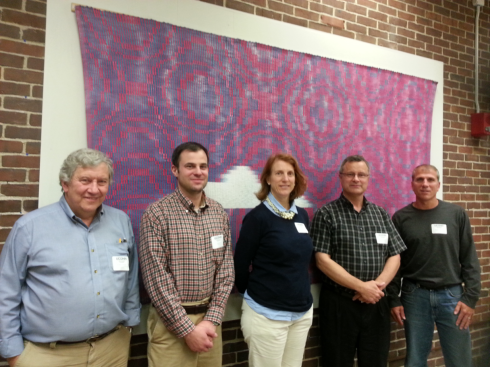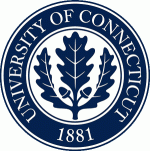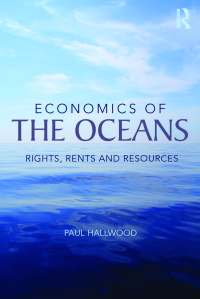 Prof. Delia Furtado will spend her sabbatical visiting Boston University this semester. During this break from teaching, she plans to continue her immigration research while surrounded by top labor economists. Former (and current) students and colleagues who find themselves in Boston are encouraged to visit! See her webpage for contact information.
Prof. Delia Furtado will spend her sabbatical visiting Boston University this semester. During this break from teaching, she plans to continue her immigration research while surrounded by top labor economists. Former (and current) students and colleagues who find themselves in Boston are encouraged to visit! See her webpage for contact information.
Author: kak11010
Prof. Alpert leads day long workshop for ECE
 At the end of the Fall 2013 semester, Professor William Alpert presented an all day workshop for Early College Experience (ECE) Economics adjuncts and preceptors. The ECE program in Economics has grown from one class taught by one instructor to three classes at 8 state public and private high schools with about 800 Connecticut students completing the classes each year.
At the end of the Fall 2013 semester, Professor William Alpert presented an all day workshop for Early College Experience (ECE) Economics adjuncts and preceptors. The ECE program in Economics has grown from one class taught by one instructor to three classes at 8 state public and private high schools with about 800 Connecticut students completing the classes each year.
The UConn Early College Experience (ECE) is a concurrent enrollment program that allows motivated high school students to take UConn courses at their high schools for both high school and college credit. Every course taken through UConn ECE is equivalent to the same course at the University of Connecticut. Students benefit by taking college courses in a warm setting that is both familiar and conducive to learning.
High school instructors who have been certified through the University of Connecticut serve as adjunct faculty members or preceptors and teach UConn classes.
For more information see: http://ece.uconn.edu/
Dr. Benny Widyono to Speaks at CKS Headquarters
 On January 13, Dr. Benny Widyono will give a talk titled “Economic Globalization and the impact on the Cambodian economy,” at the Center for Khmer Studies’ Headquarters in Siem Reap.
On January 13, Dr. Benny Widyono will give a talk titled “Economic Globalization and the impact on the Cambodian economy,” at the Center for Khmer Studies’ Headquarters in Siem Reap.
Dr. Widyono is currently an adjunct professor at the UConn Stamford campus. He is also an advisor at Leopard Capital LP. Previously, Dr. Widyono served as a United Nations diplomat in Cambodia, Thailand, Chile, and New York. He was a peacekeeper in Cambodia with UNTAC from 1992 to 1993, and then returned to Cambodia as the UN Secretary-General’s Representative from 1994-1997. Dr. Widyono published Dancing in the Shadows: Sihanouk, the Khmer Rouge, and the United Nations in Cambodia while he was a visiting scholar at Cornell University.
For more about Khmer Studies, please click here.
Economics Department Receives New Trust Fund
The Economics Department is very pleased to announce that it has been designated as the beneficiary of the Eleanor Bloom Trust. The trust is a permanent endowment, and Ms. Bloom left instructions that the funds be used to provide financial aid to the Economics Department, preferably for research assistants. Funding of this type provides critical support for our department and graduate program, allowing us to provide greater opportunities for the enhancement of research and teaching, and the education and training of graduate research assistants. And it is particularly gratifying when the source is a former student who chose to give back to the University and the Department in this way.
Ms. Bloom received her B.A. in Economics with Honors from UConn in 1955. She went on to receive her MA from Trinity College and taught Latin at E.O. Smith High School in Storrs. The Department is very grateful for her support.
Professors Alpert and Harmon Present at Atlantic Economic Conference


“Practical Experience with Online/Blended Course Delivery: Questions for Research” at the 75th International Atlantic Economic Conference , Philadelphia, PA, 4-7 October, 2013.
Professor Ross in Vox
![rosslarge[1]](https://uconnecon.files.wordpress.com/2012/03/rosslarge1.jpg?w=130)
![rosslarge[1]](https://uconnecon.files.wordpress.com/2012/03/rosslarge1.jpg?w=130)
Professor Couch Receives Evaluation Grant


Professor Langlois Visits UConn-in-London


While in England, Professor Langlois also met with officials of the UConn London program; gave a talk at the University of Wolverhampton; and presented a paper at the Workshop on Institutions and Economic Change in Hitchin, Herts.
Economics of the Oceans


On the Contents page Hallwood writes:
On the surface of the blue-green planet people have fought over the green bits for ages. However, because they didn’t seem worth fighting over, they hardly bothered with the blue bits. Strange as it might seem, the green bits are mainly well tended while the blue bits are in awful disrepair. Why is this? Let’s see if we can find out.
He then attempts to answer this question in 23 chapters using the tools of environmental economics, natural resource economics, and law and economics.
Prof. Jorge Aguero Awarded Grant from IADB
Professor Jorge Agüero has been awarded a small grant from the Inter American Development Bank (based in Washington, D.C.) for his project “Long-Term Effect of Climate Change on Health: Evidence from Heat Waves in Mexico.
Abstract
I use random year-to-year variation in temperature to estimate the long-term effects of climate change on health outcomes in Mexico. Using temperature data at the district level and three rounds of nationally representative household surveys, I match an individual’s health as an adult with the history of heat waves in each stage of her life cycle until adulthood. This provides a sample of over 75,000 individuals born between 1960 and 1990. The richness of the data allows me to contribute to the existing literature in several ways. First, I use temperature data within states, which permits a more precise estimation of the effect of climate change. Second, I estimate the long-term effects by examining whether exposure to extreme temperatures early in life affects adult health. Third, the model permits the comparison of exposure early in life vis-à-vis later periods, allowing me to identify the critical health periods with respect to temperature. Finally, the project will explore heterogeneous effects by gender, location, poverty level of the area, and access to resources. The results of this investigation will provide academics and policy makers with the most comprehensive analysis about the long-term effects of climate change on health outcomes in the region.
More info to come as the project moves forward.
Congratulations, Professor Agüero.